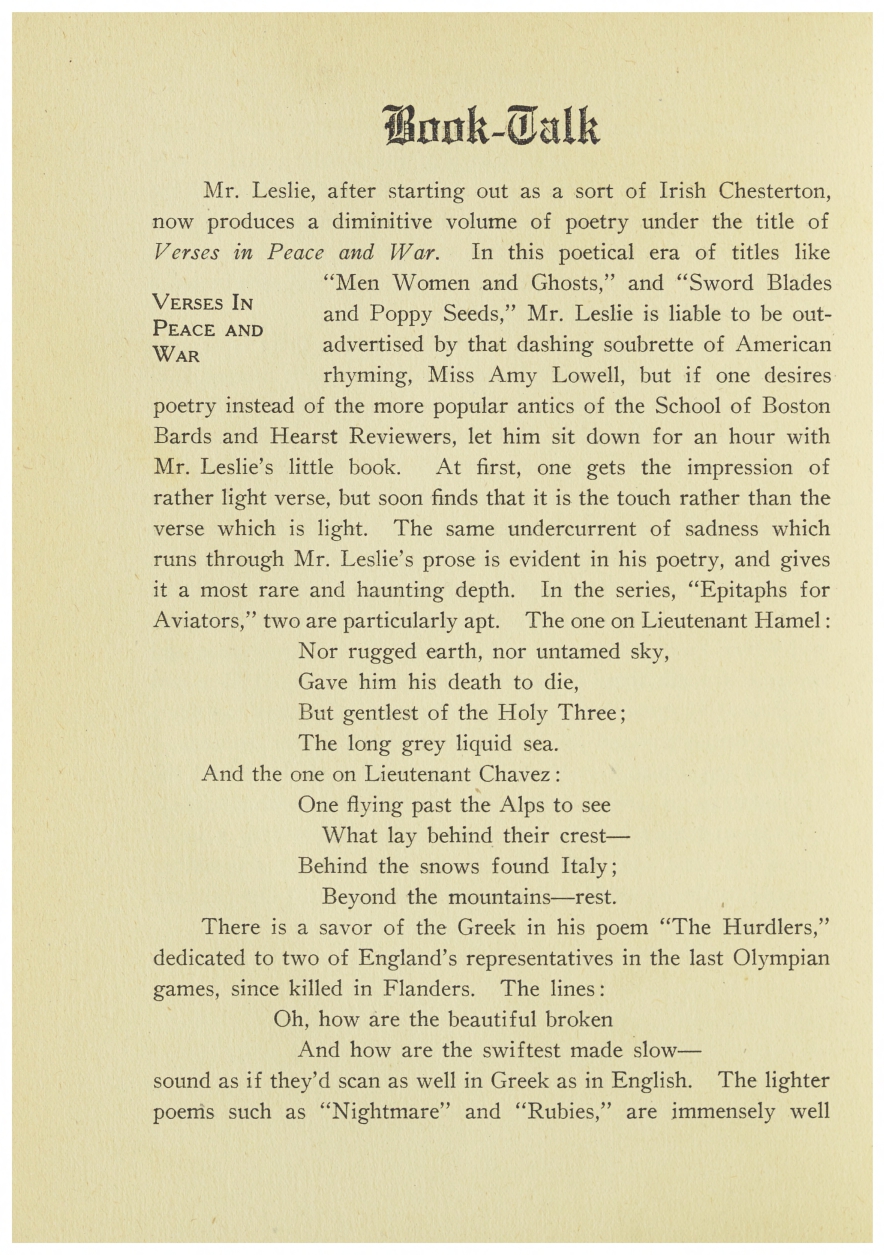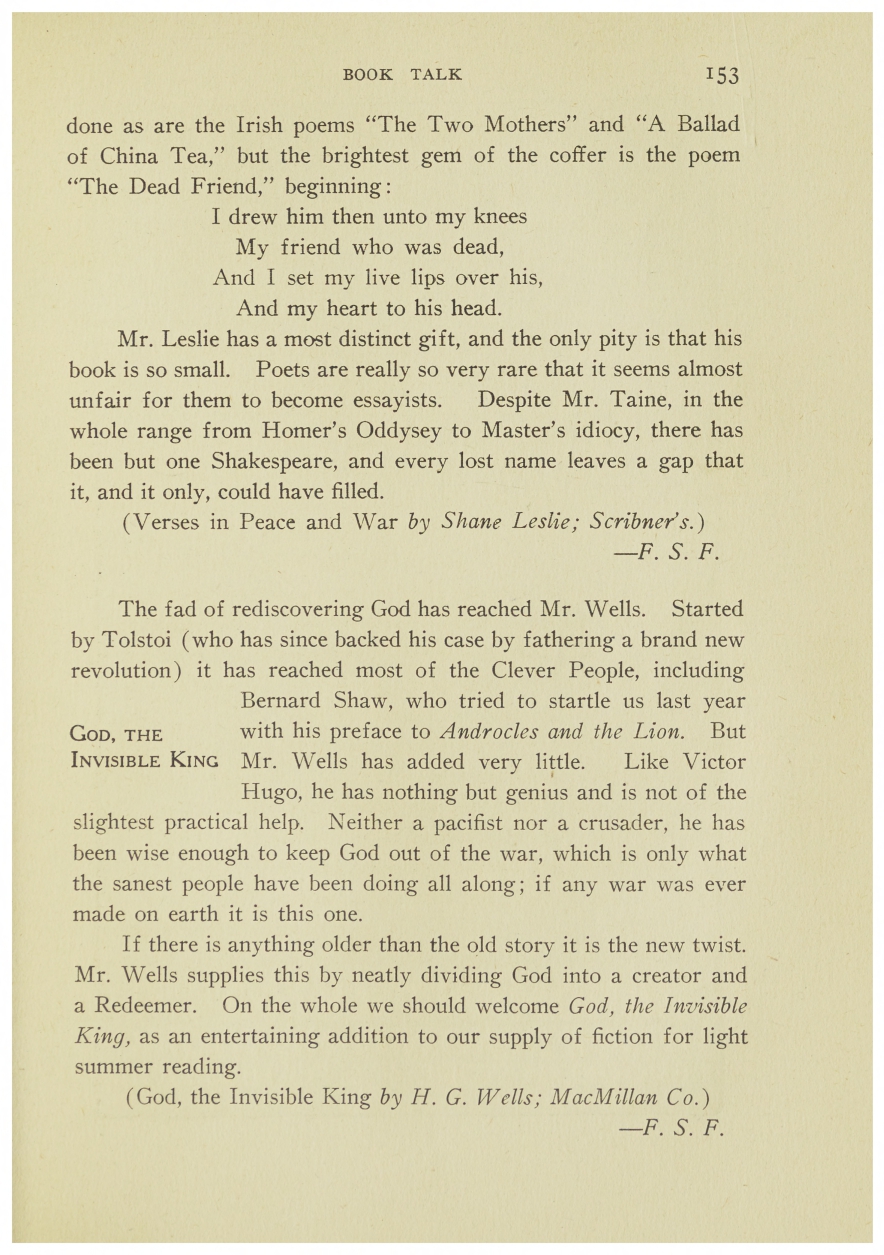
Review of Shane Leslie’s “Verses in Peace and War”
by F. Scott Fitzgerald
Mr. Leslie, after starting out as a sort of Irish Chesterton,1 now produces a diminutive volume of poetry under the title of Verses in Peace and War. In this poetical era of titles like Men, Women and Ghosts and Sword Blades and Poppy Seed,2 Mr. Leslie is liable to be out-advertised by that dashing soubrette of American rhyming, Miss Amy Lowell, but if one desires poetry instead of the more popular antics of the School of Boston Bards and Hearst Reviewers,3 let him sit down for an hour with Mr. Leslie’s little book. At first, one gets the impression of rather light verse but soon finds that it is the touch rather than the verse which is light. The same undercurrent of sadness which runs through Mr. Leslie’s prose is evident in his poetry and gives it a most rare and haunting depth. In the series, “Epitaphs for Aviators,” two are particularly apt. The one on Lieutenant Hamel:
Nor rugged earth, nor untamed sky,
Gave him his death to die,
But gentlest of the Holy Three;
The long grey liquid sea.
And the one on Lieutenant Chavez:
One flying past the Alps to see
What lay behind their crest—
Behind the snows found Italy;
Beyond the mountains—rest.
There is a savor of the Greek in his poem “The Hurdlers,” dedicated to two of England’s representatives in the last Olympian games, since killed in Flanders. The lines:
Oh, how are the beautiful broken
And how are the swiftest made slow—
sound as if they’d scan as well in Greek as in English. The lighter poems, such as “Nightmare” and “Rubies,” are immensely well done as are the Irish poems “The Two Mothers” and “A Ballad of China Tea,” but the brightest gem of the coffer is the poem “The Dead Friend,” beginning:
I drew him then unto my knees
My friend who was dead,
And I set my live lips over his,
And my heart to his head.
Mr. Leslie has a most distinct gift, and the only pity is that his book is so small. Poets are really so very rare that it seems almost unfair for them to become essayists. Despite Mr. Taine,4 in the whole range from Homer’s Odyssey to Masters’s idiocy,5 there has been but one Shakespeare, and every lost name leaves a gap that it, and it only, could have filled.
(Verses in Peace and War by Shane Leslie; Scribner’s.)
—F.S.F.
Notes
1. English man of letters G. K. Chesterton (1874-1936) was, like Shane Leslie, a Catholic convert.
2. Men, Women and Ghosts (1916) and Sword Blades and Poppy Seed (1914) were verse volumes by poet Amy Lowell (1874-1925).
3. Fitzgerald is playing on the title of the satirical poem English Bards, and Scotch Reviewers (1809) by Lord Byron (1788-1824).
4. Hippolyte Taine (1828-1893), French literary critic.
5. Poet Edgar Lee Masters (1868-1950), author of Spoon River Anthology (1915).
Published in The Nassau Literary Magazine (June 1917).
Not illustrated.

